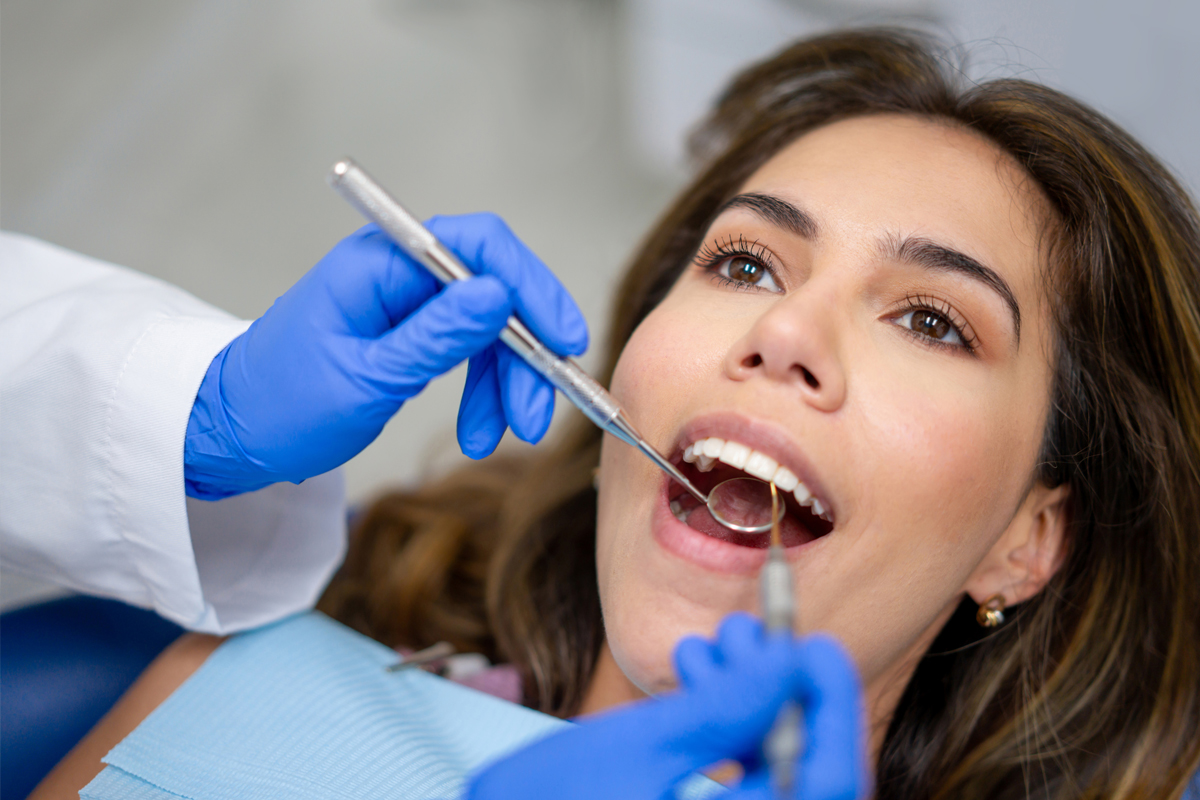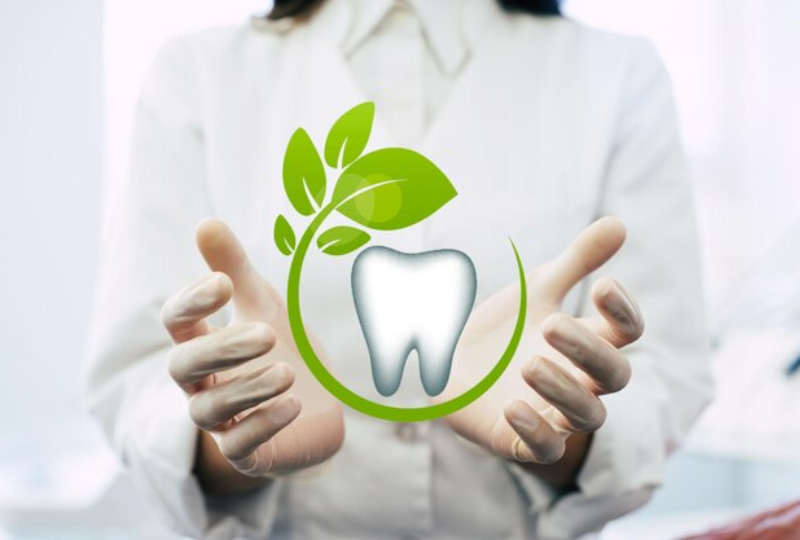943 Finchley Rd, London NW11 7PE
How Early Detection Can Save You From Oral Cancer?
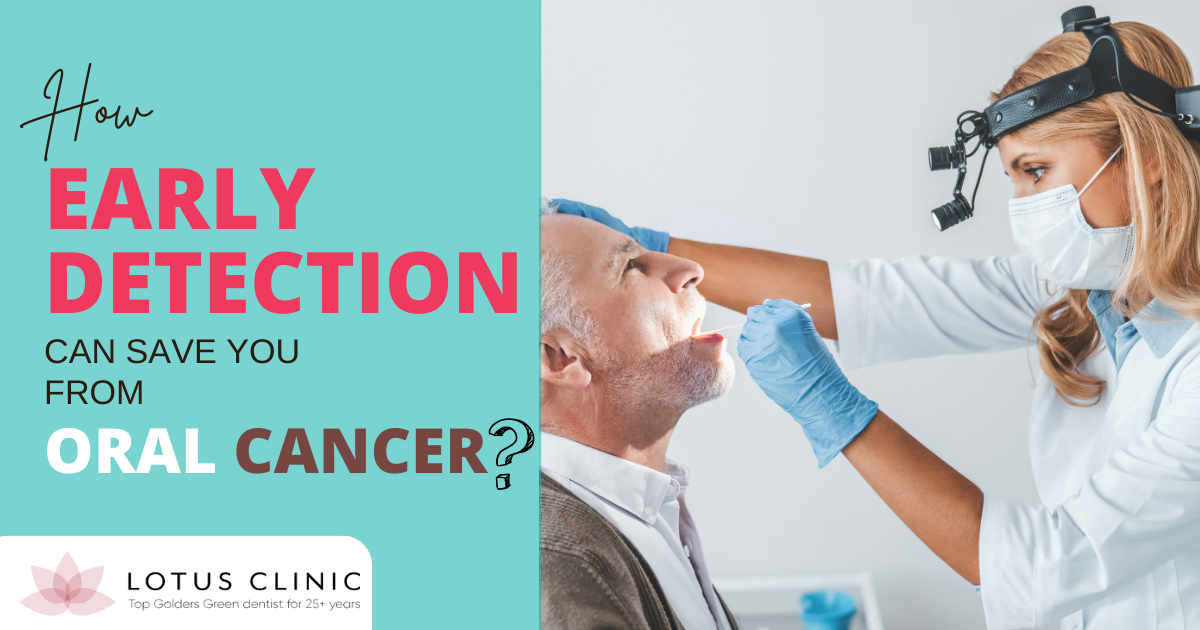
Oral cancer is a serious condition that can have significant consequences if not detected early. Imagine catching it in its earliest stages—this could mean the difference between a straightforward treatment and a much more complex one. Early detection plays a critical role in managing oral cancer effectively and can significantly improve outcomes.
Regular check-ups and being vigilant about any changes in your mouth are key to early detection. Early symptoms can be subtle, making it crucial to stay informed and proactive about your oral health. In this blog, we’ll explore how recognising early signs and undergoing routine screenings can save lives. Get ready to learn how simple steps can make a big impact in preventing oral cancer from becoming a major issue.
What Is Oral Cancer?
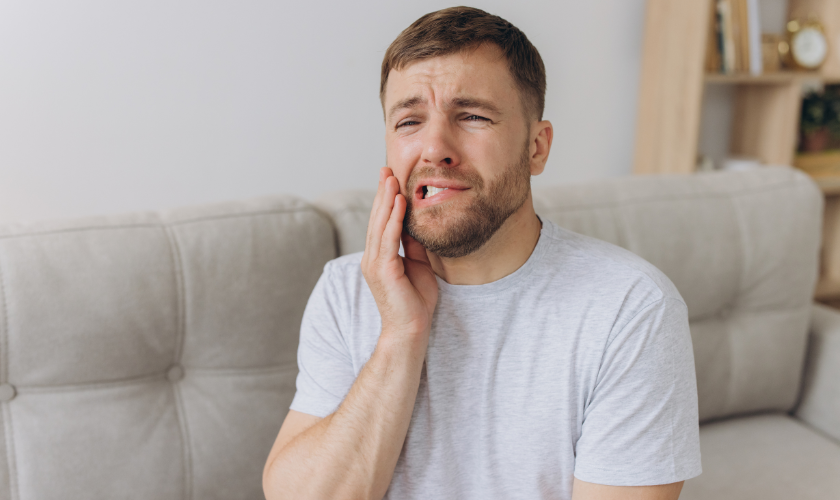
Oral cancer refers to malignancies that develop in the tissues of the mouth or throat. It can affect the lips, gums, tongue, the floor of the mouth, and the roof of the mouth. This cancer often starts as a small sore or ulcer that doesn’t heal and can progress to more severe symptoms if left unchecked.
Common Types of Oral Cancer:
- Squamous Cell Carcinoma: The most common type, originating in the cells lining the mouth.
- Salivary Gland Cancer: Less common but can affect the salivary glands.
- Lip Cancer: Usually caused by excessive sun exposure.
Early identification of oral cancer is crucial because it can grow and spread quickly. Recognising the symptoms early can lead to more effective treatment and a higher chance of recovery. If you notice any unusual changes or persistent sores in your mouth, it’s important to seek medical advice promptly.
Early Warning Signs of Oral Cancer
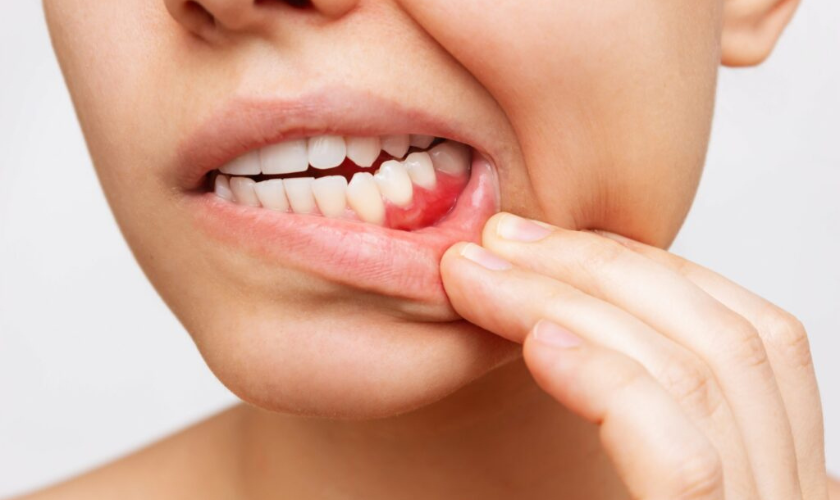
Early detection can significantly impact the effectiveness of treatment. Knowing the warning signs helps you stay alert and proactive about your oral health. Here’s what to look out for:
- Persistent Sores: Sores or ulcers that don’t heal within two weeks.
- Unusual Bleeding: Bleeding or numbness in the mouth.
- Lumps or Growths: Any unusual lumps or thickening of tissues in the mouth.
- Difficulty Swallowing: Trouble swallowing or a feeling that something is stuck in your throat.
- Changes in Speech: Altered speech or voice changes.
If you experience any of these symptoms, don’t wait for them to worsen. Early diagnosis often leads to less invasive treatments and better outcomes.
The Role of Regular Oral Health Checkups
Regular dental check-ups play a vital role in detecting oral cancer early. Dentists are trained to identify abnormal changes that might not be visible to you. During routine visits, your dentist will:
- Examine Soft Tissues: Check for any unusual lumps or abnormalities.
- Perform Visual Inspections: Look for signs of oral cancer during your exam.
- Use Diagnostic Tools: Utilise tools and technologies to assess changes in oral tissues.
By keeping up with regular appointments, you increase the chances of catching oral cancer at a stage where treatment is most effective. Don’t skip your dental check-ups; they are a critical part of maintaining overall oral health.
Diagnostic Procedures for Oral Cancer
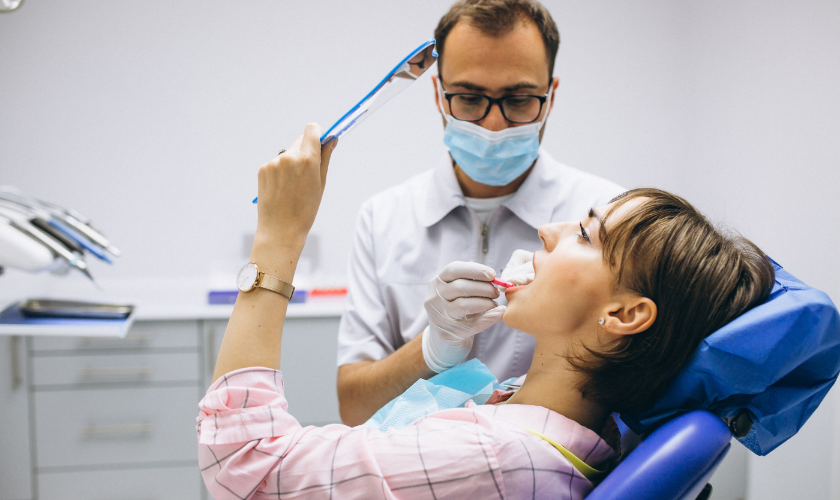
If your dentist or doctor suspects oral cancer, several diagnostic procedures can confirm the diagnosis:
- Biopsy: Removing a small tissue sample to check for cancer cells.
- Oral Brush Biopsy: Using a brush to collect cells from a suspicious area.
- Imaging Tests: X-rays, CT scans, or MRIs to determine the extent of cancer spread.
- Endoscopy: Using a thin tube with a camera to look inside the mouth and throat.
These procedures help in accurately diagnosing oral cancer and determining the best course of treatment. They provide crucial information about the size, location, and spread of the cancer, which guides treatment decisions.
Treatment Options for Oral Cancer
Treatment for oral cancer depends on the stage and location of the cancer. Common treatment methods include:
- Surgery: Removing the cancerous tissue and, in some cases, surrounding tissue.
- Radiation Therapy: Using high-energy rays to target and kill cancer cells.
- Chemotherapy: Using drugs to kill cancer cells or stop their growth.
- Targeted Therapy: Using drugs to target specific cancer cells while minimising damage to normal cells.
Your healthcare team will discuss these options and help you choose the best treatment based on your specific case. Early detection often means a better chance of successful treatment and a quicker recovery.
How Lifestyle Changes Can Lower Your Risk?

Making positive lifestyle changes can significantly reduce your risk of developing oral cancer. Consider the following tips:
- Quit Smoking: Smoking is a major risk factor for oral cancer. Quitting can reduce your risk.
- Limit Alcohol Consumption: Excessive alcohol use increases the risk of oral cancer.
- Maintain Good Oral Hygiene: Regular brushing, flossing, and dental visits can help prevent oral health issues.
- Healthy Diet: Eating a balanced diet rich in fruits and vegetables supports overall health and may lower cancer risk.
By adopting these healthy habits, you can improve your overall health and reduce the likelihood of developing oral cancer.
Additional Resources and Support
Finding reliable information and support is essential for managing your oral health. Here are some resources:
- National Cancer Institute: Offers information on oral cancer symptoms, treatments, and support.
- Oral Cancer Foundation: Provides resources for early detection, treatment, and patient support.
- Local Support Groups: Connecting with others facing similar challenges can provide emotional support and practical advice.
Early detection of oral cancer can significantly increase your chances of successful treatment and recovery. By being aware of the warning signs and undergoing regular dental check-ups, you can catch potential issues early. Remember, timely action is key to addressing any concerns. Prioritise your oral health by staying informed and seeking professional advice whenever you notice changes. Your proactive approach can make all the difference in preventing and managing oral cancer effectively.



